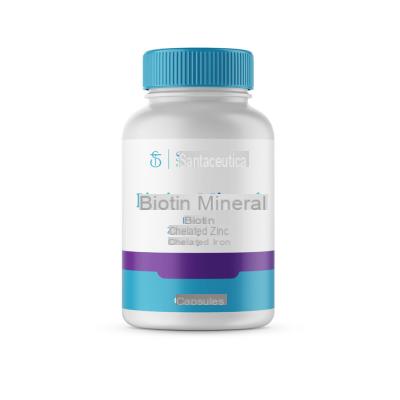
Biotin: what it is
La biotin is a vitamin of complex B (B7 or B8, depending on whether the nomenclature is German or English). Also called vitamin H, biotin is also a coenzyme, that is, it allows the function of some that some enzymes of regulate the metabolism of fats, proteins and sugars.
It is therefore important for the liver and for the functions it is responsible for performing. Finally, biotin is necessary for the DNA construction.
Biotin comes absorbed in the intestine, and then transferred from liver. It is therefore important to keep the intestinal flora healthy, without which biotin could be lost.
Properties of biotin
I benefits of biotin for the body are numerous: it is an essential vitamin and a coenzyme able to help the absorption of other B vitamins. Its main properties are:
> Benefits for the health of skin, hair and nails: biotin helps in case of skin, capillary and nail fragility, improves the appearance of these tissues, and promotes hair growth, counteracting alopecia, and acting on sebaceous production;
> is useful in case of seborrheic dermatitis: due to its property of acting on the sebaceous glands and as a regulator of sebum production in the skin, it is effective in case of seborrheic dermatitis;
> in pregnancy, associated with the hiring of folic acid, facilitates a correct fetal development;
> improves the metabolism of sugars, carbohydrates, and fats responsible for the formation of cholesterol: biotin plays an important metabolic role, keeping blood glucose and cholesterol levels stable.
For its metabolic function at the level of sugars it is indicated in cases of slight depression due to energy deficit and in the cases of diabetes: in the latter case, in-depth scientific studies are underway to prove its effectiveness.
Read also Vitamins B6 and B12 for a load of energy >>
Biotin: indications
Biotin is not produced by the body itself, so it is needed introduce it from the outside. Furthermore, being water-soluble, the body does not constitute reserves of it, therefore it must be taken daily.
In a balanced diet, the supply of biotin easily reaches the daily requirement, but in special cases, such as a too poor and restrictive diet, in cases of excessive and rapid weight loss, or while taking antibiotics, biotin can and must be integrated.
They exist on the market biotin-based supplements, to be taken under medical indication if it is ascertained the lack.
In cases where instead you want to improve the appearance of the skin, hair, nails, and act on the metabolism, you can increase the intake of biotin by implementing the consumption of certain foods: meat and dairy product they are rich, but also the brewer's yeast and dried fruit, although the absorption of biotin in the latter foods is limited.
By taking these foods you can increase the availability of biotin, since each food has, in its unique entirety, all the components necessary for the absorption of vitamins and nutrients, often more than an isolated food supplement can allow.
Read also Foods rich in vitamin B >>


























